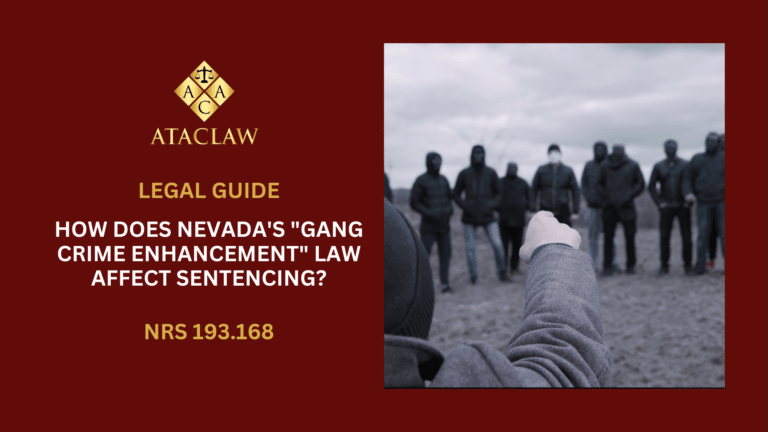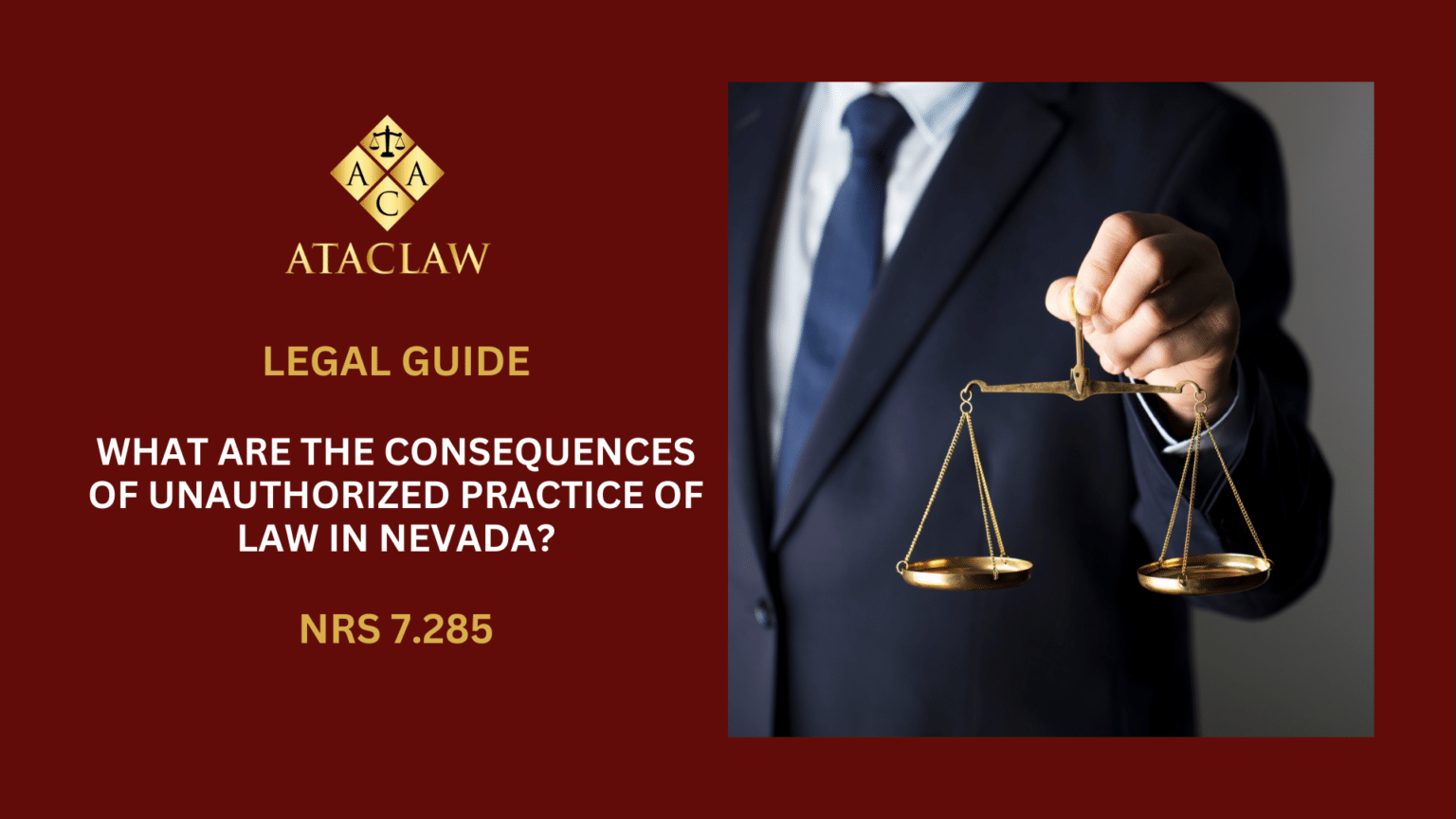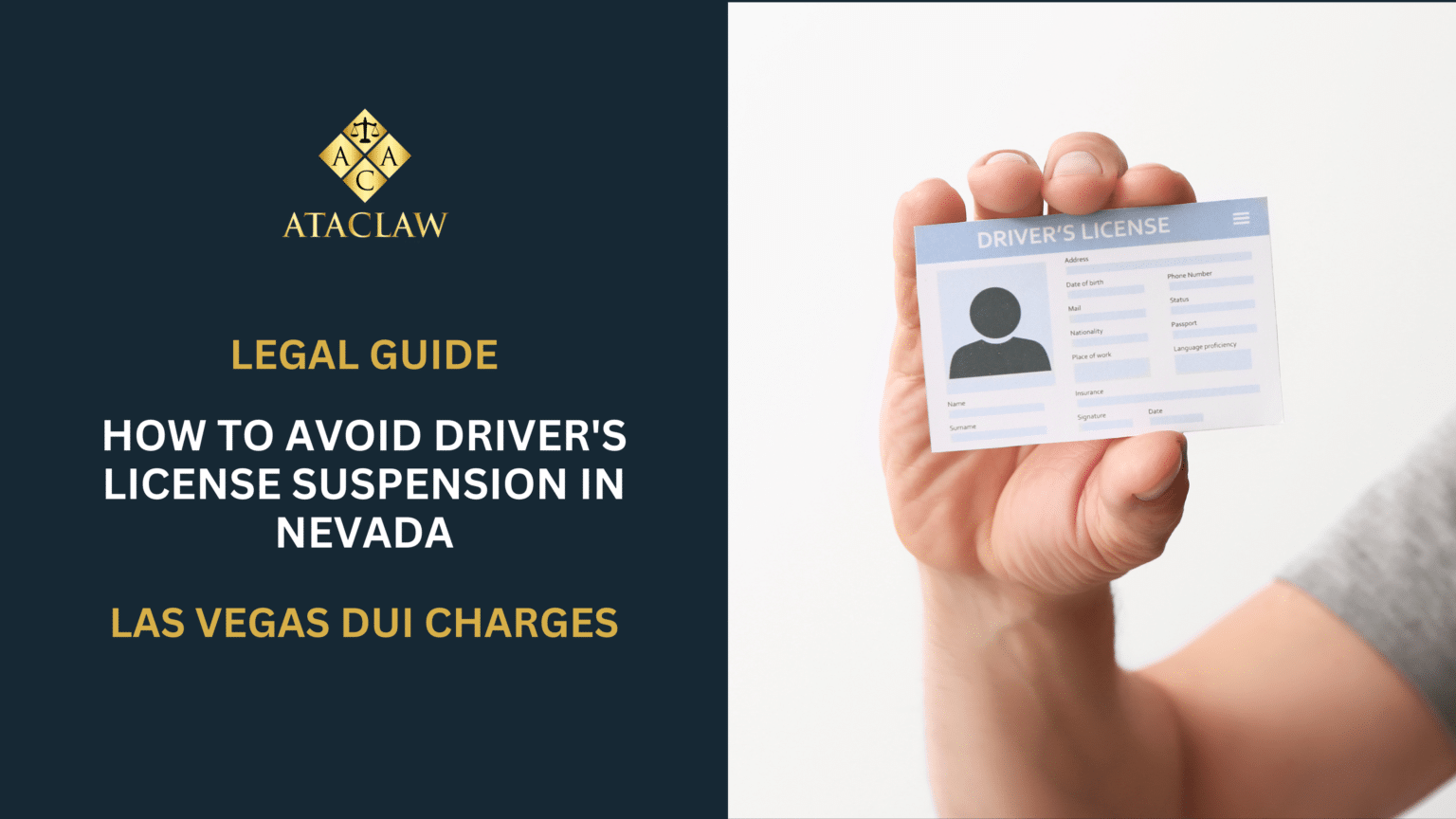When involved in legal matters related to gang-related crimes in Nevada, understanding the impact of Nevada’s Gang Crime Enhancement Sentencing Law (NRS 193.168) becomes crucial. At ATAC LAW, we strive to provide you with comprehensive insights into how affiliations with criminal gangs can lead to enhanced penalties under Nevada law.
How Does Being Associated With a Gang Increase Sentencing in Nevada?
In Nevada, when a felony is committed in relation to criminal gang activity, it triggers what is known as a gang enhancement, directly leading to a harder hitting sentence. This enhancement means that an individual will serve additional prison time on top of the sentence for the underlying felony offense.
The enhancement comes with a defined minimum of one year in prison. However, the upper limit on this additional punishment can either match the length of the sentence for the core felony or cap at 20 years in prison, depending on which of the two is less.
When judges from the district court deliberate on the duration of a gang enhancement, they weigh several factors, including:
- The nature and specifics of the main offense;
- The defendant’s previous criminal record;
- The resulting impact on the victim, if applicable;
Potential mitigating factors, such as a history of abuse in the defendant’s life; and Other pertinent details that may influence the decision.This consecutive serving of the sentences markedly lengthens the total time spent in prison, exemplifying the legal system’s tougher stance against crimes tied to gang involvement as opposed to solitary criminal acts.
Can Gang Enhancements Be Considered Separate Crimes in Nevada?
In the state of Nevada, gang enhancements are not standalone offenses but rather significant additions to the sentencing for a primary felony conviction that is linked to gang activity. Should the main felony charge be dismissed, the gang enhancement, as a consequence, becomes null.
Is Probation an Option Instead of a Gang Enhancement in Nevada?
In the state of Nevada, the possibility of receiving probation or a suspended sentence as a substitution for a gang enhancement is categorically excluded. The law stipulates that judges do not have the discretion to offer probation or suspend sentences when it comes to the additional time prescribed by gang enhancements.
Nonetheless, there is a provision that allows for some leniency with the sentence related to the underlying felony itself. Should the defendant offer considerable aid in the apprehension or conviction of other individuals involved in the felony or connected gang activities, judges can reduce or even suspend the primary felony’s sentence. This demonstrates a balance within the legal framework, promoting cooperation that could potentially dismantle or disrupt gang operations.
What Constitutes a Criminal Gang According to Nevada Law?
In the eyes of Nevada’s legal system, the term “criminal gang” refers to a group that is characterized by:
Possession of a unified name or identifiable mark;
Engagement in specific customs or behaviors that are unique to them; and
Participation in felonies is one of their regular activities.
Thus, the concept of a criminal gang goes significantly beyond merely a cohort of rebellious youth who spend time loitering in alleyways or tagging walls with graffiti. For a group to be classified under the legal definition of a criminal gang, actively committing felony crimes needs to be among its primary objectives.
Typical criminal activities that are often associated with gang operations include serious offenses such as murder, physical assault as outlined under NRS 200.481, robbery, arson, and issuing challenges to engage in combative disputes. This legal framework helps in distinguishing between informal groups and organized gangs based on their activities, particularly those relating to serious criminal endeavors.
For further legal assistance and to discuss your case with an expert, don’t hesitate to contact ATAC LAW.




